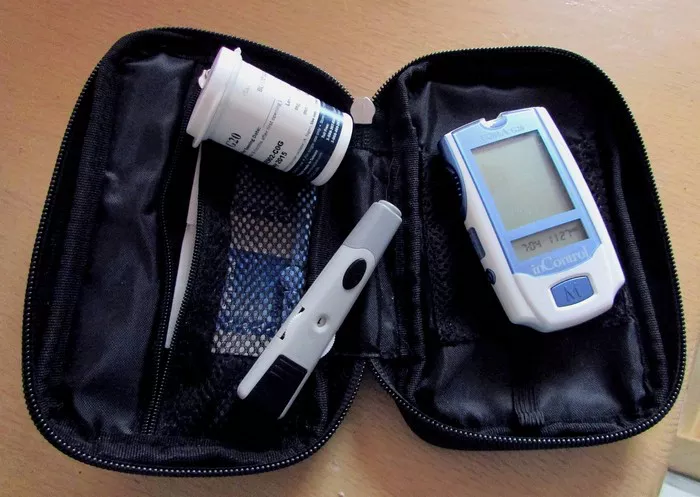Diabetes mellitus, commonly referred to as diabetes, is a chronic metabolic disorder characterized by elevated blood sugar levels over a prolonged period. This condition occurs due to either inadequate insulin production by the pancreas or the body’s cells becoming resistant to insulin’s effects. Insulin is a hormone that regulates glucose uptake into cells for energy production. Without effective management, diabetes can lead to serious complications, including cardiovascular disease, kidney damage, nerve damage, and vision impairment.
Diet plays a crucial role in managing and preventing diabetes. The foods we consume directly impact blood sugar levels, insulin sensitivity, and overall health. By adopting a healthy diet and lifestyle, individuals can significantly reduce their risk of developing type 2 diabetes, the most common form of the disease.
Risk Factors
Several modifiable risk factors related to diet and lifestyle contribute to the development of diabetes. These include:
Unhealthy Eating Habits: Diets high in processed foods, sugary snacks, and beverages contribute to weight gain and insulin resistance.
Sedentary Lifestyle: Lack of physical activity reduces insulin sensitivity and increases the risk of obesity, a significant risk factor for type 2 diabetes.
Excess Body Weight: Being overweight or obese significantly increases the likelihood of developing insulin resistance and type 2 diabetes.
Poor Sleep Patterns: Inadequate sleep disrupts hormone levels, including insulin, leading to impaired glucose metabolism.
High Stress Levels: Chronic stress can elevate blood sugar levels and contribute to unhealthy eating behaviors, exacerbating the risk of diabetes.
Addressing these risk factors through dietary and lifestyle modifications is essential for diabetes prevention.
Weight Management
Maintaining a healthy weight is paramount in diabetes prevention. Even modest weight loss can significantly reduce the risk of developing type 2 diabetes. For individuals who are overweight or obese, losing just 5-10% of body weight can improve insulin sensitivity and lower blood sugar levels.
To achieve and maintain a healthy weight, focus on:
Portion Control: Be mindful of portion sizes to avoid overeating, especially high-calorie foods.
Balanced Diet: Prioritize nutrient-dense foods that are low in calories but high in essential nutrients.
Regular Physical Activity: Incorporate regular exercise into your routine to burn calories, improve metabolism, and support weight loss efforts.
Balanced Diet
A balanced diet is fundamental for overall health and diabetes prevention. It should include a variety of foods from all food groups, emphasizing:
Fruits and Vegetables: These are rich in vitamins, minerals, and antioxidants while being low in calories. Aim to fill half your plate with colorful fruits and vegetables at each meal.
Whole Grains: Choose whole grains such as brown rice, quinoa, oats, and whole wheat bread over refined grains. Whole grains provide fiber, which helps regulate blood sugar levels and promotes satiety.
Lean Proteins: Include lean protein sources such as poultry, fish, tofu, legumes, and nuts in your diet. Protein helps stabilize blood sugar levels and supports muscle growth and repair.
Healthy Fats: Incorporate sources of healthy fats, such as avocados, nuts, seeds, and olive oil, into your diet. These fats are beneficial for heart health and help improve insulin sensitivity.
Carbohydrate Management
Carbohydrates have the most significant impact on blood sugar levels, making carbohydrate management essential for diabetes prevention. Choose complex carbohydrates, which are rich in fiber and digested more slowly, over simple sugars.
Examples of complex carbohydrates include:
Whole Grains: Brown rice, quinoa, barley, oats, and whole wheat pasta.
Legumes: Beans, lentils, and chickpeas.
Starchy Vegetables: Sweet potatoes, squash, and peas.
Limit intake of simple sugars found in processed foods, sugary snacks, and beverages, as these can cause rapid spikes in blood sugar levels.
Fiber Intake
A high-fiber diet offers numerous health benefits, including improved blood sugar control and digestion. Increase fiber intake by incorporating the following foods into your meals:
Whole Grains: Choose whole grain bread, cereal, and pasta instead of refined grains.
Fruits: Eat whole fruits rather than fruit juices, as they contain more fiber and fewer added sugars.
Vegetables: Include a variety of vegetables in your meals, both raw and cooked, to boost fiber intake.
Legumes: Add beans, lentils, and chickpeas to soups, salads, and stir-fries for a fiber-rich protein source.
Healthy Fats
Not all fats are created equal. While saturated and trans fats can increase the risk of heart disease and insulin resistance, healthy fats play a vital role in supporting overall health. Choose sources of monounsaturated and polyunsaturated fats, such as:
Avocados: Add sliced avocado to salads, sandwiches, and wraps for a creamy texture and heart-healthy fats.
Nuts and Seeds: Snack on a handful of almonds, walnuts, or pumpkin seeds for a satisfying crunch and a dose of healthy fats.
Olive Oil: Use extra virgin olive oil for cooking, salad dressings, and marinades to add flavor and beneficial fats to your meals.
Fatty Fish: Incorporate oily fish like salmon, mackerel, and sardines into your diet for omega-3 fatty acids, which support heart and brain health.
Protein Choices
Protein is an essential nutrient that plays a crucial role in building and repairing tissues, including muscle tissue. Choose lean protein sources to reduce saturated fat intake and support overall health. Opt for:
Skinless Poultry: Chicken and turkey breast are lean protein options that can be grilled, baked, or sautéed.
Fish: Include fatty fish like salmon, trout, and tuna in your diet for omega-3 fatty acids and lean protein.
Tofu and Tempeh: These plant-based protein sources are versatile and can be used in stir-fries, salads, and sandwiches.
Legumes: Beans, lentils, and chickpeas are excellent sources of plant-based protein, fiber, and essential nutrients.
Reducing Added Sugars
Added sugars provide empty calories and contribute to weight gain and insulin resistance. Minimize added sugars in your diet by:
Reading Labels: Check food labels for hidden sugars in processed foods, beverages, and condiments.
Choosing Unsweetened Options: Opt for unsweetened beverages such as water, herbal tea, or sparkling water instead of sugary drinks.
Limiting Desserts and Sweets: Enjoy sweets and desserts in moderation, choosing options made with natural sweeteners or fruit.
Sweetening Naturally: Use natural sweeteners like honey, maple syrup, or stevia sparingly in place of refined sugar.
Regular Physical Activity
In addition to dietary changes, regular physical activity is essential for diabetes prevention and overall health. Aim for at least 150 minutes of moderate-intensity aerobic exercise, such as brisk walking, cycling, or swimming, per week. Additionally, incorporate strength training exercises two or more days per week to build muscle mass and improve insulin sensitivity.
Practical Tips
Making healthier food choices can be simplified with the following practical tips:
Meal Planning: Plan your meals ahead of time to ensure balanced nutrition and avoid impulsive food choices.
Grocery Shopping: Make a grocery list and stick to it to avoid purchasing unhealthy foods on a whim.
Reading Nutrition Labels: Pay attention to serving sizes, calories, and nutrient content when reading nutrition labels to make informed choices.
Recipes and Meal Ideas
Here are some sample recipes and meal ideas that align with the dietary recommendations for diabetes prevention:
Breakfast: Quinoa Breakfast Bowl with Greek Yogurt, Fresh Berries, and Almonds.
Lunch: Grilled Chicken Salad with Mixed Greens, Avocado, Cherry Tomatoes, and Balsamic Vinaigrette.
Dinner: Baked Salmon with Roasted Vegetables (bell peppers, zucchini, and carrots) and Quinoa.
Snack: Apple Slices with Almond Butter or Carrot Sticks with Hummus.
Conclusion
By following these dietary guidelines, incorporating regular physical activity, and adopting healthy lifestyle habits, individuals can significantly reduce their risk of developing diabetes and promote overall well-being. Remember, small changes can lead to significant improvements in health outcomes over time.



























